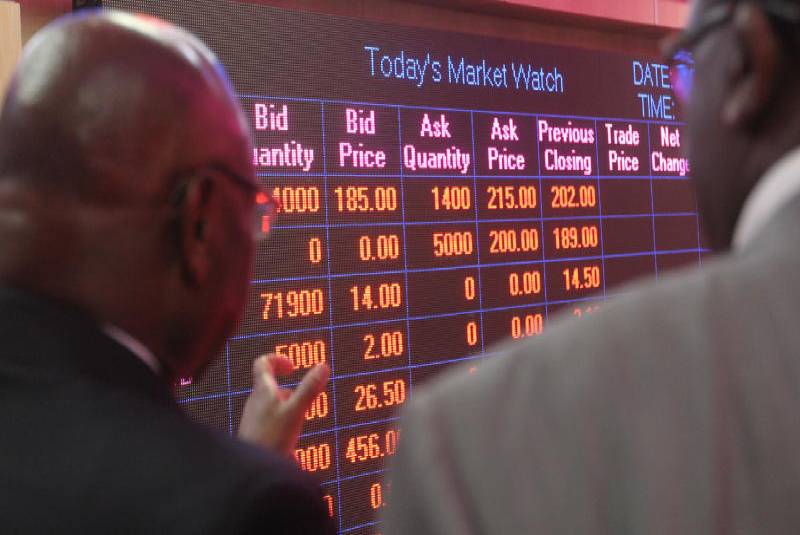×
The Standard e-Paper
Fearless, Trusted News

Traders check out the trading index during the Bell Ringing ceremony for KENGEN to trade at the NSE at the NSE's offices in Westlands,Nairobi. [Photo: Elvis Ogina]
The shilling has shrugged off the effects of the latest terror attack on an upmarket shopping complex.